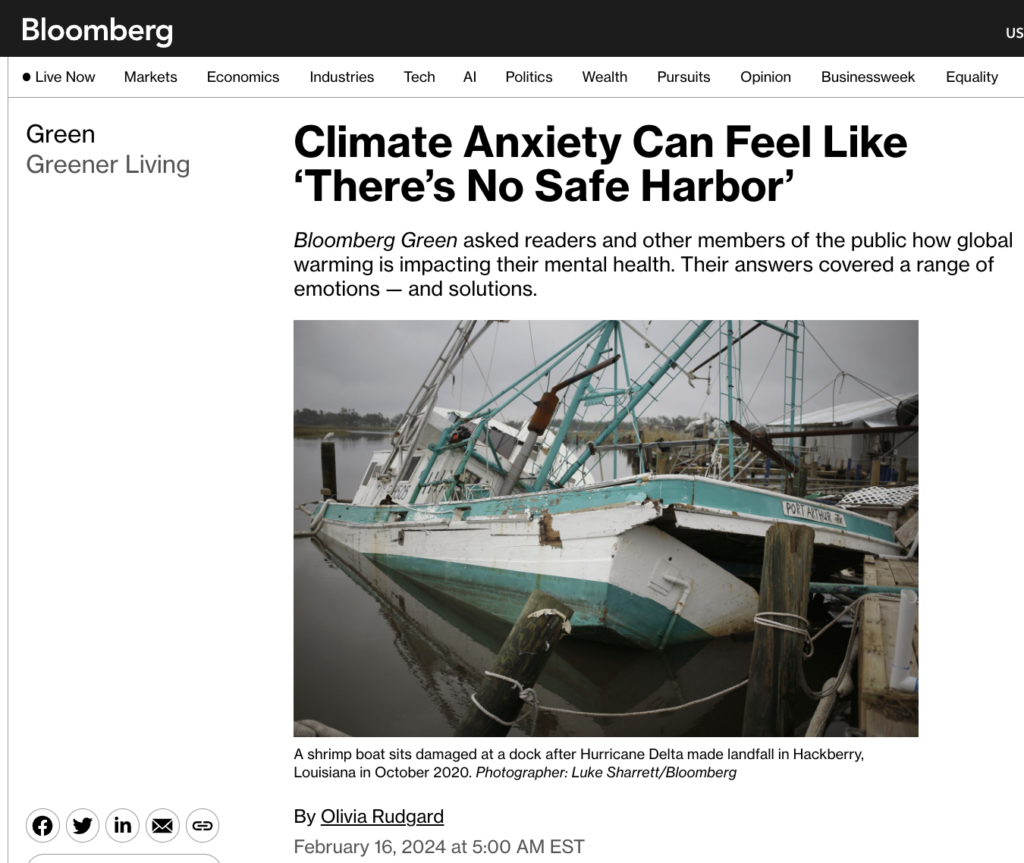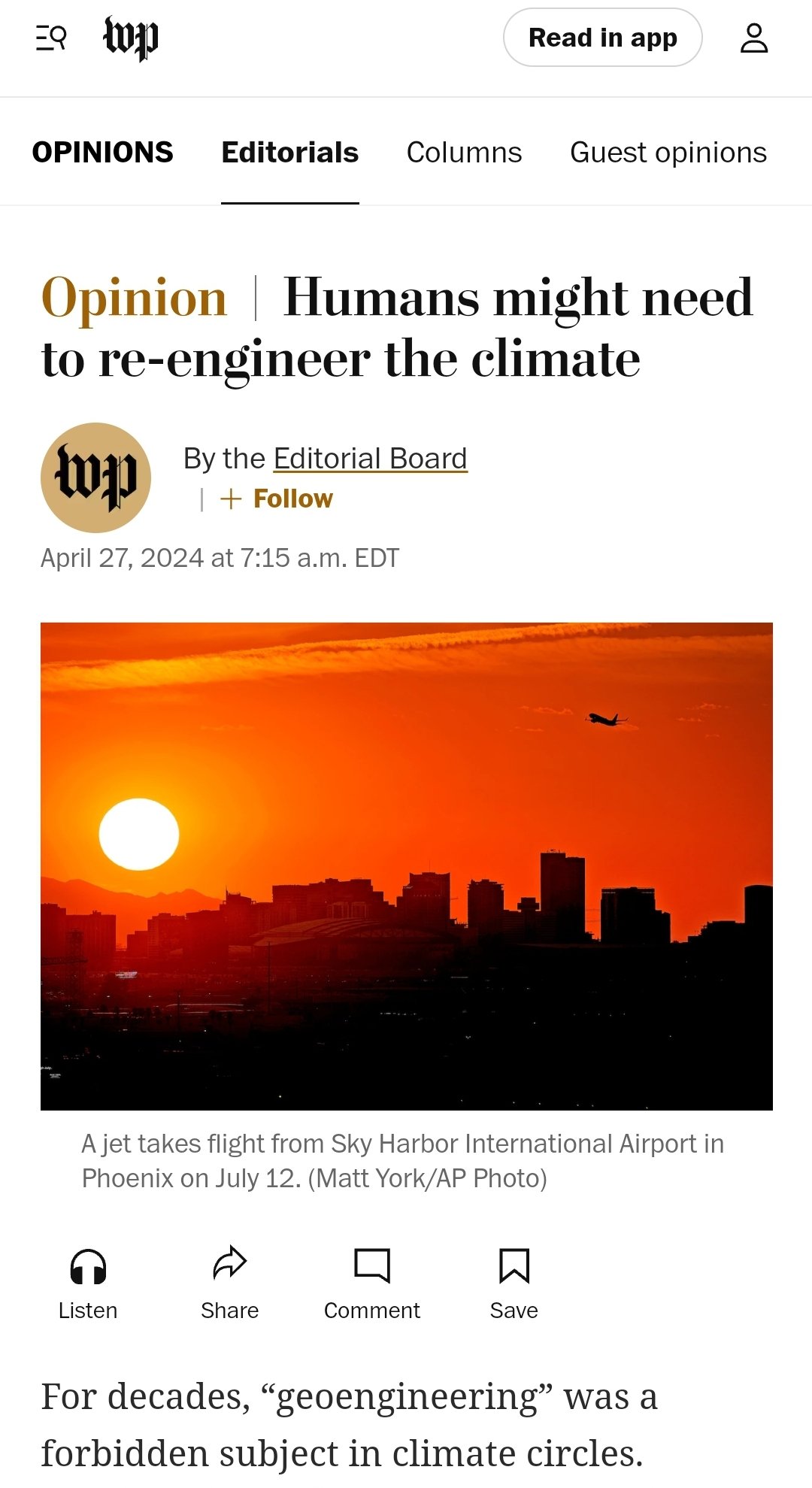#
Bloomberg Green asked readers and other members of the public how global warming is impacting their mental health. Their answers covered a range of emotions — and solutions.
Excerpt:
For Tom Spencer, there was a moment where his feelings about climate change tipped over from something remote and abstract into real anxiety. The 35-year-old Brit had spent years working in PR in the electric motorsport sector. When he moved to Ireland in 2018, he found himself confronting a flood of misinformation about electric vehicles.
“Like most people, I had known there was this underlying big problem, but it hadn’t been my problem. It wasn’t really affecting my daily life,” he says. But the more greenwashing he encountered, the closer to home it became. A mixture of adapting to a new culture, the added anxiety of the pandemic and a sense of responsibility toward others meant everything came to a head in early 2020. “It’s this feeling where it suddenly clicks. I completely understand the scale of this issue. God, we’ve wasted a lot of time,” he says.
You can’t understand climate change without understanding people. It is a big, hairy problem that we each feel responsible for but can’t solve on our own. Staring at it directly can be paralyzing, and if you engage directly with the bare, cold reality of the predicament we are in, it can be hard to think about anything else. It’s tempting to deny it or to play it down — what an enormous relief it must be to decide that actually, it’s not a big deal after all. But engaging with it — without falling into either paralysis and despair, or denial and disbelief — is the first step to addressing it.
So when we asked Bloomberg Green readers about their feelings on climate change, we wanted to understand both how living with this problem was affecting your day-to-day lives, and also what helps you cope. We received hundreds of responses covering the full range of emotions — guilt, fear, anxiety, rage and worry. We had responses from all over the world, and we also sought out some perspectives from therapists and people with direct experience of climate disaster. Along the way, we found even more people who wanted to tell us how they’ve learned to cope with the anxiety.
…
I spoke to Flora Vano, 38, the country manager for ActionAid Vanuatu, while she was at the COP28 climate summit last year. She said that a twin cyclone, which hit her country last year, left people fearing they had been cursed. For her an extra toll came from pleading for help at repeated COP meetings while people at home struggled. “Everything we touch turns into something else. Our garden we plant, it got destroyed, our fishes move further away. So they were thinking maybe the gods are punishing us. Maybe we did something,” she said. “Our co-existence has been disturbed.”
…
For the academic Kate Schapira, 45, the way to deal with climate anxiety was to become a sort of counselor herself. In 2013, she found herself crying in the office and at the dinner table after reading an article about coral bleaching. Inspired by the running gag in the Charles M. Schulz newspaper cartoon Peanuts, in which Lucy sets up a booth offering “Psychiatric Help” for 5 cents, she began visiting local parks and festivals with her own booth, and a sign offering “Climate Anxiety Counseling — 5 cents.”





